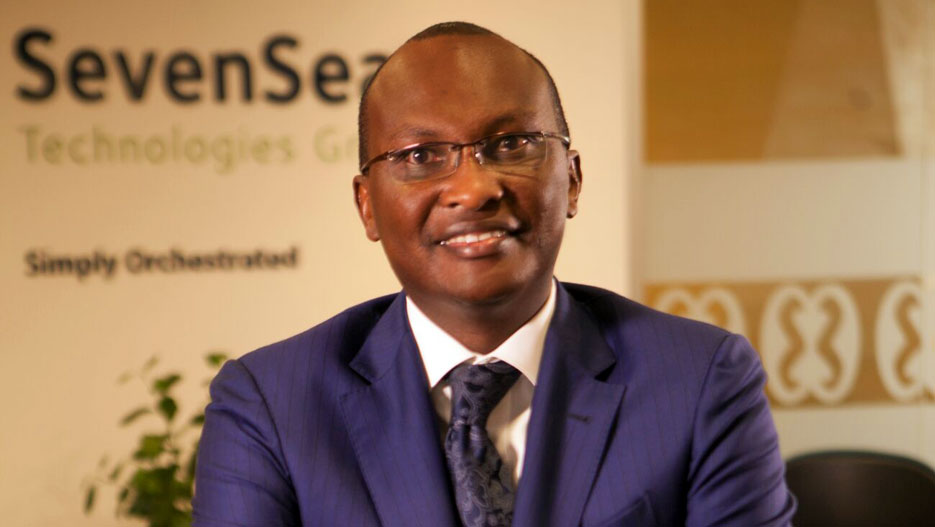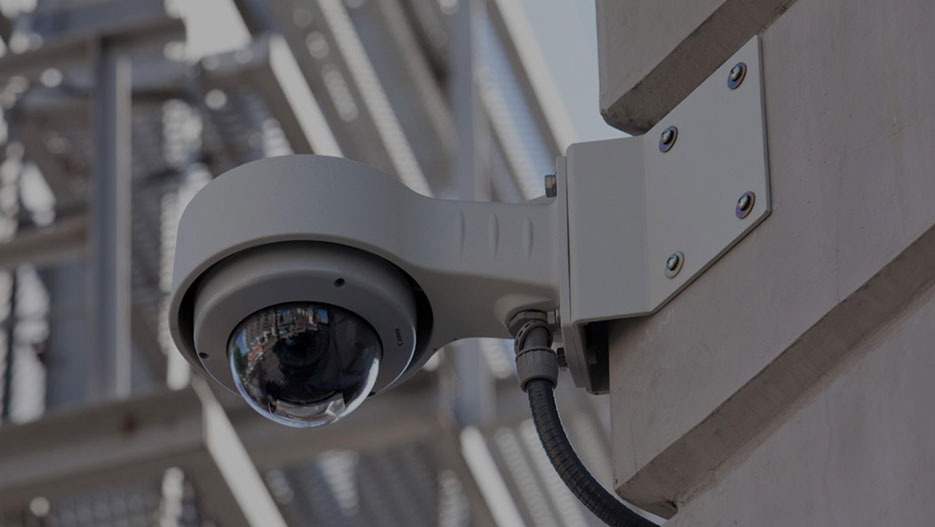SevenSeas Technologies: Integrated Business and Technology Solutions
Michael Macharia presents SevenSeas Technologies, leading provider of integrated business and technology solutions to customers, spanning the healthcare, homeland security and social services spaces.
Interview with Michael Macharia, Founder and Group CEO of SevenSeas Technologies

What is your evaluation of the ICT sector here in Kenya and even in Africa?
If you look at Kenya, for instance, maturity in terms of technology is around. If you look around at what’s been happening in the marketplace, the government is beginning to automate to a large extent. The private sector companies led by the telecom companies have gone through their automation process. So they are really now on the cutting edge of technology. The banking sector is also highly innovative around technology with areas of financial services. Kenya is playing a very key role there. The areas of citizen services and revenue collection are key components of technology in government and e-government services and are also taking off. But definitely, if you go across to our neighbors, or different cultures across the region, they also have a different level of maturity. If you go to the opposite of Africa, the maturity is very different. The way to address the IT market is looking at the level of maturity where we currently are. For Kenya, we are facing a very interesting transformation, which is around the whole innovation ecosystem. There is the issue of putting up technology cities like Konza and Techno Park, the issue of looking at the integration of human capital, universities into curriculum, adopting technology in schools, the delivery of health care using telemedicine and televideology. Those are areas that will begin to transform. So the question really is, as a country in Africa, where can we really be good at in the area of technology? It’s looking at multiple sectors that we could play a critical leapfrogging role. Number one, is healthcare. In African healthcare, we are looking at Kenya and other emerging markets. We could actually be change bearers of transforming how healthcare is delivered. This means primary and secondary healthcare in Africa. Education could also be a critical area where Africa could leapfrog. How we deliver education, because our education systems are not as sophisticated as those in the developed world. There are things we can learn from the developed world that we can be able to replicate here, but be able to make it fit a purpose here. The next area is what we call our cofinancial services, and there we’ve really leapfrogged. Africa is way ahead of the global market in the areas of mobile money and mobile payments. And some of those innovations only came as a result of technology. At the same time, they became relevant because they are solving critical problems in terms of the unbound population. The area of energy in terms of green energy could be an area where we could play a critical role. And lastly, the area of agriculture in Africa is a critical part. In Kenya agriculture is a big thing. Technology, to a large extent, has not been highly utilized in delivery of activity in the agricultural space. What technology we deploy that will make an impact is not about just deploying technology for technology. It’s not about talking about IT for the sake of saying IT. It’s about talking about whatever way the solutions are implemented. Are they fit for a purpose and do they have a significant impact in the marketplace either through change of life, increasing GDP, increasing jobs creation, making us more productive, or transforming the marketplace? Those are the things that you need to look at when you look at technology in terms of size and impact on an economy.
What are your key professional advantages? What do you offer as a company at Sevenseas? Where are you in this market that you describe? What are the areas where you are strong?
We traditionally stared out as a technology infrastructure company and moved into technology applications. Today we are in our 16th year. But as we became more mature, multiple things changed. For the last five years, we’ve transformed our organization towards one key deliverable. But anything we do in technology has got to have significant impact in transforming our communities and changing lives. So anything we choose to do has to apply to those fundamental principles. And when we transformed our business towards this journey and our vision, it became very apparent that there were several sectors that could make significant impact. The first sector we looked at was healthcare. In healthcare for instance, if you look at some of the projects we are doing, we realized that our competitive advantage sits in aggregating global players that offer technology platforms or technology components. Whether it is radiology infrastructure, labs or oncology infrastructure, those global players need to localize their capability. And where those platforms meet technology, ICT, that is where our niche is. Most of these global players are not as agile as you could possibly be in our marketplace. So co-innovation with them in the marketplace plays a very significant role to be able to deploy some of this global project, both this national or African based projects. We’ve had successes in this. We have helped the Kenyan government, with the likes of General Electric, to take the lead in transforming a large portion of secondary delivery hospitals. We’ve been able to transform a major delivery life cycle. And also capability delivery across a country of 45 million people, delivery of 100 hospitals, delivery of high level quality care across a country. When we indict that with the likes of other diagnostics companies not only in the area of oncology, but at the same time we also use this opportunity to leapfrog areas of EMR, electronic medical records, we are leapfrogging areas of radiology. We’re also making a difference in areas of innovation. With that, we’ve also launched a national, a Kenya based with an idea of becoming Africa based, health accelerator.
We traditionally stared out as a technology infrastructure company and moved into technology applications. Today we are in our 16th year.
We’ve also realized that some health innovations have got to come from industry practitioners that have been there for ages, but they never have had an opportunity to be able to have a platform to think about their idea. We also looked at scale up SMEs or start-ups that have been unable to scale up to the next level through trying to solve critical problems in healthcare. So we’ve taken healthcare in multiple areas. Horizontally we’ve looked at technology components or what I call heavy lifting technology. Vertically, we looked at technology in terms of ICT. And in the Z-axis we’ve looked at innovation. So we turn to play those three XYZ dimensions to be able to see where we can have a competitive advantage. And it’s working for us. We see our human resources grow. The kind of capabilities and teams we have within the organization has grown. Our revenues have also grown as a result. So these are things that we have seen that have transformed our business. There are five things we believe will change African healthcare. One is we’ve managed to solve our healthcare human resource issue. That’s a big opportunity for us also. Second, look at technology models or digital models that can transform healthcare. That is also going to be a critical health care delivery opportunity. Next there is the issue of PPP’s, public-private partnerships. We also team up with governments to help them solve problems. The next area is critical or looking for innovative financial models. Can we create innovative financial models? The next opportunity is the area of supply chains. The level of inefficiency in our healthcare supply chains is ridiculous in Africa. Can we solve those problems? Can Africa solve the human resource problems? Could we solve some of the supply-chain challenges? Could we find critical ways or very interesting ways to solve delivery of healthcare? These are all different opportunities for us. That’s why our vision to transform and change communities using healthcare is a valued one.

Give us an example of a major project that can illustrate those points.
The Kenyan government and Uhuru Kenyatta have made some remarkable moves in certain areas, healthcare is one of them. For a very long time, healthcare in Kenya was pretty wasteful in terms of delivery of infrastructure, and sometimes not productive. So the government opted to get into interesting financial models for healthcare. The government realized that it had to take a long-term view with delivery infrastructure across the country whether with ICU, theaters, radiology infrastructure, renal or dialysis infrastructure for kidneys, or labs. So it took a seven year view and realized it is not good at owning equipment, infrastructure, even making sure OP time is available. So the government actually took the five capabilities I mentioned earlier. Number one, they realized we need to be able to enter into public-private partnerships to deliver this infrastructure. So the government then teamed up and decided we’re going to take a long-term view and commit capital. They committed capital of $400 million for the seven years to modernize our hundred hospitals. So, overnight they were able to attract global multinationals who were able to come and play and copartner with the government. So the likes of GE, Phillips, Mindry, companies from all over the world wanted to be able to participate in this friendship. Overnight, the companies that were awarded this project were able to create end to end delivery infrastructure for those five or six areas. The companies are also responsible for creating local partnerships that enable them to execute in the same way.
The companies are also mandated to create human resource capacity across the country to a level that could help them manage that infrastructure and also offer clinical services. So the government has managed to sort the supply chain issue, which was a big problem. Equipment that was being bought was sitting in hospitals dilapidated and not working. So you by an x-ray or you buy an ultrasound and six months later, the ultrasound is still in the government hospital not functioning. So today, the responsibility for that infrastructure sits with the partner. And through a public-private partnership, the human resource issue was solved to a large extent because it forced product manufacturers to team up with universities locally to build capability. The financing issue was sorted because the government didn’t have to cough up $400 million, initially. It was able to defer payments for seven years. It forced the global multinationals to team up with global banks or local banks to create innovative financial models. So whereby you could not see even local banks or global banks funding healthcare, now they are willing to fund healthcare in a PPP model. From a technology point of view, it allowed the government to create technology platforms that could create an overnight successes in things like teleradiology. Where you had a shortage of radiologists you could have a national relief center. So already you have the reading of x-rays and ultrasounds being done at the national level. We were able to reform the area of EMR, electronic medical records, because overnight you’re able to collect analytical information to give you information that is well structured to help you make informed decisions in terms of preventative medicine. Capital, public-private partnership, human resources, innovative finance and technology have all happened in the span of less than two years, which is a very short period of time. The transformation and nature of the population of 45 million for that kind of infrastructure being deployed within 15 months is incredible. The opportunity sits everywhere: in the supply chain, in public-private partnerships, with the people who are going to offer innovative finance. Irrespective of what you look at, the opportunity is there.
We are lucky that we are part of our project. Because then we teamed up with people like GE and we became a major subcontractor for them. So my organization has scaled in many ways and today we are able to understand a lot of medical infrastructure projects and we’ve managed to get a lot of global companies coming to work with us. Viology, Abbot, Variot. So we have global companies that want to team up with us as a result of the success of this project. We’ve been able to create a diverse workforce that is not only technology but also biomedically driven. We’ve been able to create IP and co-innovation that we can use globally across other markets. We’ve been able to create a brand that people respect overnight. You have a massive project in which you’ve tested your capabilities. So for many ways, for us it’s worked well. We’ve been able to take that infrastructure and say let’s build out an innovative platform because we’ve been around the country and seen the opportunities and the problems. Whether it’s maternal health care or the issue of kidney dialysis, we see problems, life problems, because we’ve been out there. We understand the problems and we are saying there could be great innovators with great problems I could plug into the opportunities we see as a company. Even if it’s a very remote area, we are there already. We are able to link those opportunities or innovations to clear opportunities. For us it has worked well. And definitely we see that in the long term as a critical win for us in the marketplace. We are excited about the future.

How do you replicate this model that you’ve managed to do in Kenya outside? You are present in Ethiopia, Zambia, Zimbabwe, Ghana, Nigeria. How do you develop in the rest of Africa? What is your perspective or your mission?
Two things are happening really. When you build successes in your local markets people emulate them. Some of these projects already have a lot of admirers across Africa. This was really breaking barriers in many ways. Many countries had never really done this. So it’s possible. We go to many events and talk about capital in health, infrastructure deployment, whether you can trust government. So people can see you can trust the government to deliver something. A lot of other governments have begun coming to Kenya to see some of these projects from the time we started deploying this project with GE. For instance, in other markets beyond GE a lot of other similar projects are coming out and other countries have come to see what we are doing in Africa. So naturally that creates opportunity. Those opportunities come because we’ve understood our execution. Two things tend to happen. Your global partners carry you across other markets because it’s easier for them to execute within those markets. You also start realizing opportunities. You become good at what you do and you start playing a notch higher to realize you can become an aggregator of technology and healthcare. So when you go to a hospital for instance, you’re able to say, “Look, can I deliver an interim solution because now I understand the variables. I understand whether or not I have to bring partners.” We find ourselves playing at a Tier 1 level being able to go to a hospital in Angola and convince the government or private player you’re going to be able to do end to end. We have the capability whether it’s construction, integration, equipment implementation, support. So, as we scale, we also become better at what we do. And then we got good references in our marketplace to be able to help us execute. At the same time, we don’t ignore that as you go into Africa you need to create partners. So when you go to those markets, we look for other companies like Sevenseas, either through acquisition or through partnerships, to be able to scale. Because we cannot ignore any local factor because those companies will know what it takes. So we identify companies like Sevenseas who we can work with to be able to execute this. Look at Africa. Look at collectively winning. Everybody has to be a win-win across the ecosystem whether it is a global national partner with us or a local company that wants to partner with us or often African companies agreeing to act together to create synergy to create value.

What are you looking for in investors?
I see long-term. I’m a founder of this company. I’ve been in this organization for 16 years. Along the journey, you bring angel investors and you bring private equity investors. Private equity and all these angel investors at some point want to unlock value. There’s always a need for capital. There’s also a need for people to exit the business as they look for other investments. So the company is always in that movement of the capital in and out or looking at ways to exit or create more value for current shareholders. Long term, it is important for us to go to the stock market and unlock value for other Kenyans and Africans in this business. We don’t have companies like myself listed yet. We’ve got big TelCo companies that would be considered an ICT, but they’re really not in our space. We need to start seeing more local companies in the stock market. It’s OK to invest your angel capital in companies like ourselves that are one day going to become major companies. That’s important. You also need to validate that investors can be out there. Come over and invest in companies that are well-run, well-structured, have a good ethical behavior and at the same time are transforming Africa. So the partners we look for are also the partners that share the same vision as ourselves and those who are willing to say we are in the long haul for Africa we are not here for the short-haul. We want to create value in Africa. We can create partnerships to create skill. The partners we look for are partners that when they come and talk to us we have mutual respect. Because ultimately it’s people to people that creates a business. We are always welcome for those conversations.
I want you to project yourself to the medium term, two, three or five years time. If everything goes according to your plans, what would you like to achieve by that time?
I’m clear about what we want to be known for. As a company and as my vision as CEO of the business, I need to constantly be able to be a beacon of hope for many entrepreneurs. We need to be able to have significant impact over what we choose to do. We need to be able to begin changes in any industry that we go into and be able to transform the way we deliver services or how we transform communities and the way we do things in Africa. So when I look at my organization five years from now, I see an organization that has managed to transform communities, whether it’s Kenya, Africa, East Africa or a village Significantly, what we do in each of those areas has a big impact either politically, commercially, economically or changing people’s lives. We are there. We’ve understood and we’ve driven our culture across the organization. Even the kind of partners we get onboard, the kind of conversations we have, it’s all about that for us. We’re living the dream. The question is how big can this dream be. And I’ve seen it in multiple areas. Beyond health that we think could make an impact. But on top of that, I think what’s going to make us very proud in the next five years is if we will have managed to carry other SMEs or other innovators with us. Can my organization be capable of building other entrepreneurs? That would be what I can call success. If our business was capable of uplifting other entrepreneurs to be successful by collaborating with them or by synergizing with them through our innovation ecosystem.
Can you give us more information about the venture capital funds you created?
If tomorrow you go to the stock market and you unlock wealth, you give back to the system into the community. Even if we exited this business and create a massive value for this business as you see entrepreneurs do, the next step is to invest in other entrepreneurs. That’s where the aspiration to become a venture capitalist one day originates from. Investing in ideas, investing in the young, investing in the future also keeps you young and gives excitement of life. If I ever create massive value from my business, I would rather be doing that every day of my life.